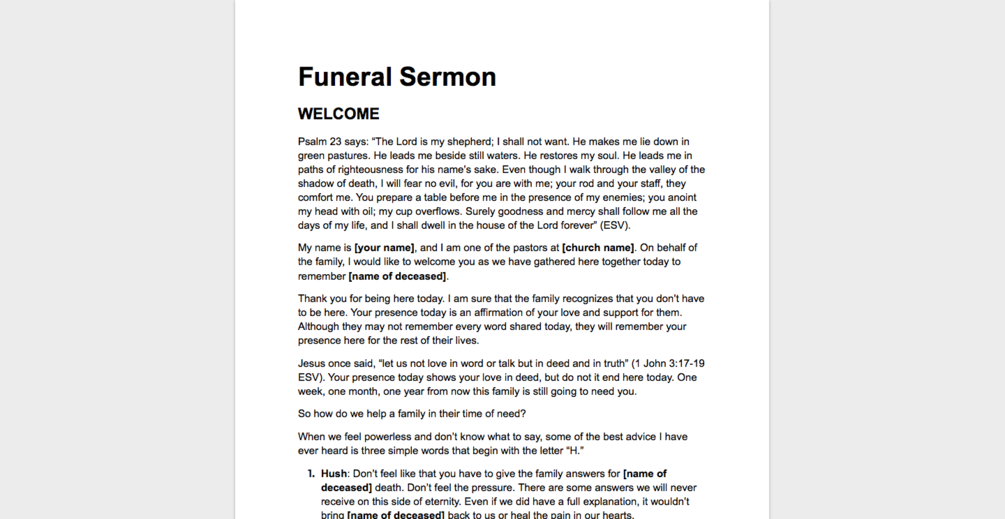The most useful advice I have received about preaching at a funeral from someone I did not know is: “Don’t preach paradise to him. “Don’t preach hell to him. Just preach the gospel to the people who are there. This principle captures our task regardless of the type of funeral we do. Ironically, while we focus on remembering and celebrating the lives of the deceased, funerals are ultimately for those who participate.
The sermon is the place where the gospel should be preached clearly.
- Only when we can personally trust a person’s conversion should we feel comfortable talking about the heavenly reward they have now received.
- If you have any doubts on your mind.
- It is best to focus on the gospel for your listeners and resist the temptation to provide false information.
- Comfort on which you have little or no basis.
A funeral sermon should not exceed 20 minutes and should highlight these three categories, preferably set out in a scripture text:
The story of Jesus resurrecting Lazarus from the dead (John 11) is particularly useful, for there seems to be a legitimate moment of mourning for those present and of sadness for those who live the separation that comes from death, including Jesus, who wept. (John 11:35) I often share the moment my father sat down with my wife and I, when we discovered that we had lost our second baby, and he urged us to take the time to mourn this child, explaining how to do it.
Never assume that people know that suffering is appropriate or that they know how to deal with suffering simply by talking about the deceased loved one; in fact, many don’t want to talk about it because of the pain they feel during the loss. Know that many times, years later, people learn the value of this process, ending in duel with some pastoral counsel.
True hope in pain cannot be separated from the hope of the gospel. That is why the second and third part of a funeral sermon focuses on the person and work of Christ. Whatever text you choose to preach, make sure you can focus on it from the clear elements of the gospel: the holiness of God; human sin and deserved judgment; The perfect person of Christ and his atoning work to save us; our essential response to repent and believe in Christ.
To do this properly and effectively, you should be prepared to know as much as possible about your listeners as well as about the deceased. You must assume that Christians and non-Christians will be present. You must assume that you all came with a preconceived understanding of how we receive eternal life. For example, I once had a funeral where ninety percent of those present were devout Catholics, one where they were Mormons and one where no one on the premises had ever entered a church.
In any case, I have clearly explained the gospel, called on my listeners to repent of their sins, to believe in Christ, and to trust in him; However, in each of these different situations, I have addressed the call to respond to the gospel differently. , depending on your preconceived understanding of the “good news”. Encourage them to be smented. Preach the gospel clearly and simply; help them understand their need for Christ while death is before them; call them to repent and believe

